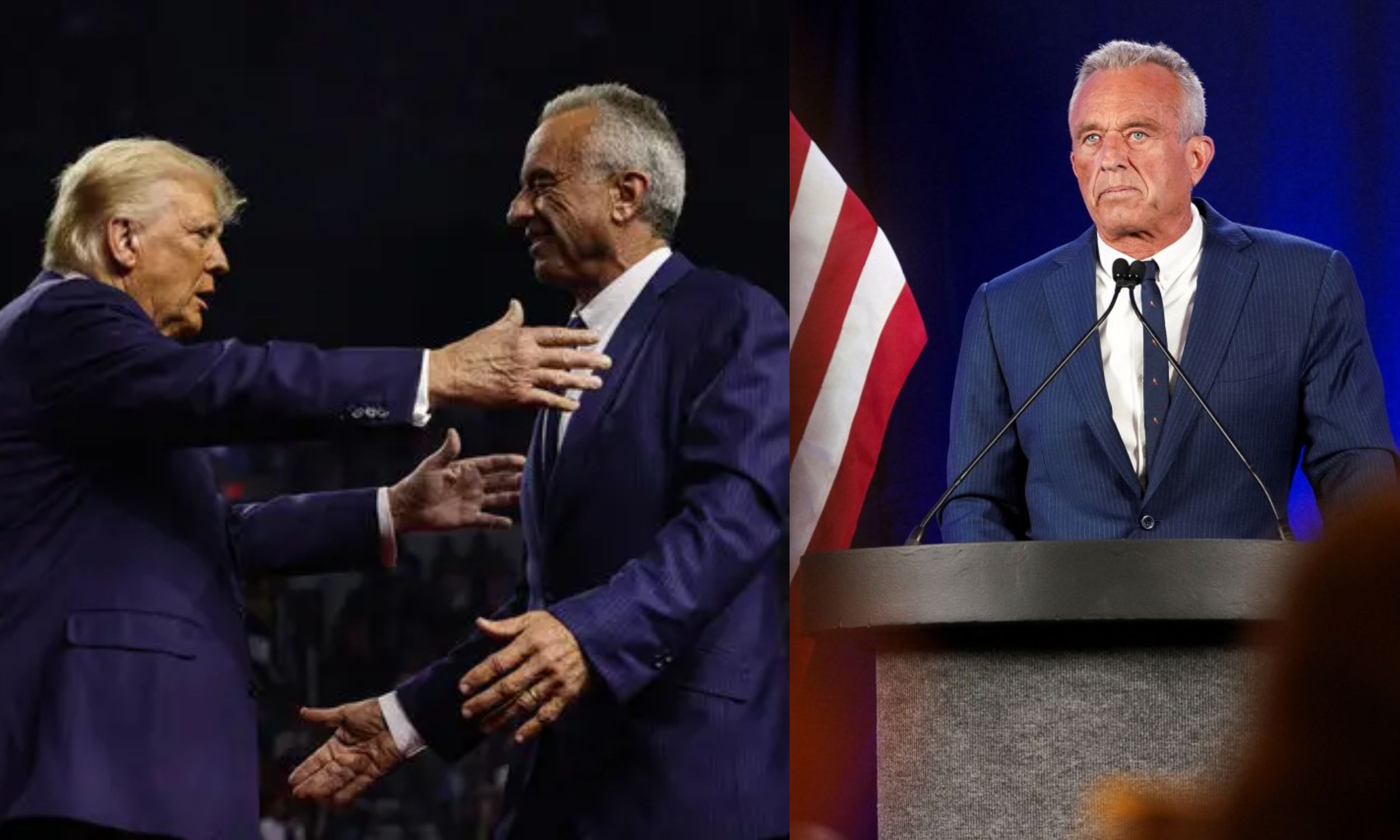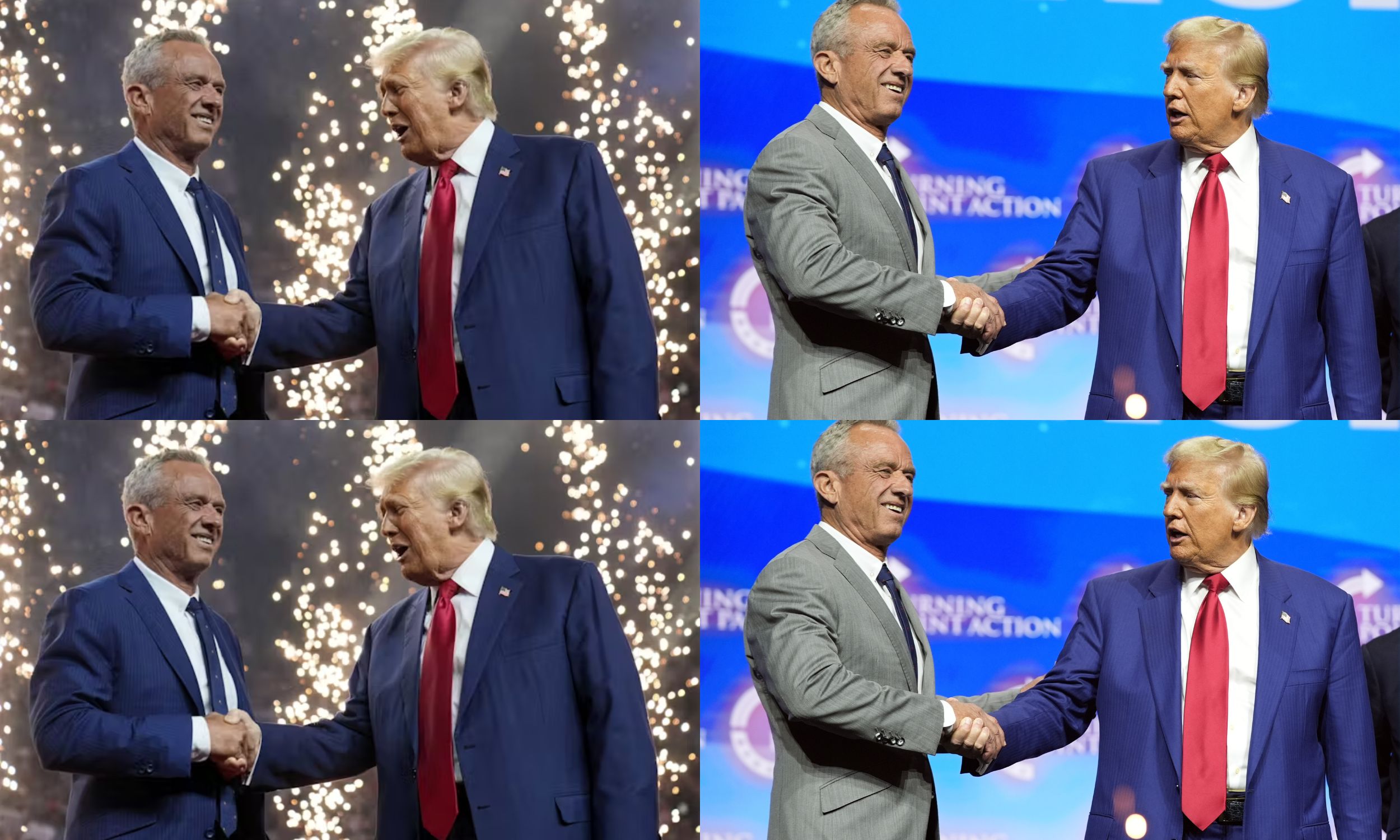The rise of Robert F. Kennedy Jr. is a surprising development following President-elect Trump’s landslide win, considering his prior image as a fringe figure. Once dismissed as an outsider, Kennedy has found himself playing a key role in Trump’s success, a move that signals his growing influence.
Together, Kennedy and Trump took a gamble, believing that a coalition of disillusioned independents and anti-establishment voters could form the base needed to defeat Vice President Harris. This strategic alliance worked, positioning Kennedy for a very vital role in the incoming administration.
Sources close to Kennedy have suggested one possibility: a position where he would serve as an adviser, bypassing the need for Senate confirmation while maintaining direct access to the President.

While no official plans have emerged, those familiar with the situation see Kennedy as likely to be incorporated into Trump’s newly revamped team. As a vocal supporter of the MAGA movement, Kennedy’s loyalty seems to have earned him this opportunity, though specifics about his potential role remain under discussion.
With speculation swirling about Kennedy’s future within the administration, key appointments and nominations are being explored, particularly in foreign policy. A source close to the situation indicated that Kennedy has already made some early suggestions, including opposition to Senator Marco Rubio’s potential nomination for Secretary of State, advocating instead for someone less aligned with neoconservative ideology.
While Kennedy’s influence is still in question, many critics, especially from the Democratic side, are skeptical of his lasting impact within Trump’s orbit. To these critics, Kennedy is seen as a fringe candidate whose unconventional beliefs, including controversial stances on vaccination, hindered his political viability. His early struggles to secure a spot on state ballots and his controversial moments, like attempts to eat a charred animal carcass, only amplified his outsider status.
Further fueling skepticism, his unusual personal history—like his claims of brain damage from a parasite—paired with his rejection of the mainstream scientific consensus on vaccinations, has painted him as a figure out of step with traditional politics.
However, Trump sees Kennedy as a unique asset, one who resonates with a segment of the electorate who share his unconventional views. This makes Kennedy a compelling figure for Trump, especially in attracting groups opposed to both neoliberal and neoconservative ideologies.
Before stepping down from the presidential race, Kennedy and Trump’s teams discussed how he could assist Trump’s campaign. The plan centered on Kennedy stepping away from key battleground states, where he might hurt Trump’s chances, to support the Republican candidate’s bid.
As the election entered its final stretch, Kennedy made it clear he wanted to influence America’s public health policy, an area where Trump showed interest, even suggesting a potential role for Kennedy in women’s health. This proposal sparked backlash from Democrats, who failed to rally female voters around abortion-related messaging.

In response, Trump indicated that he would give Kennedy the freedom to pursue his health care agenda, with Donald Trump Jr. echoing this sentiment in conservative media. One of Kennedy’s more recent controversial proposals involves eliminating fluoride from the nation’s water supply, a stance that has raised concerns among health experts.
Trump has shown little opposition to Kennedy’s ideas, simply promising to allow him the space to pursue his health-related goals. Despite the clear friction between Kennedy’s views and the more traditional aspects of American governance, especially from the perspective of Democrats, some remain hopeful that his influence will be limited.
Critics point to structural obstacles, such as the Senate’s 60-vote threshold for Cabinet confirmations, and argue that agencies like the Environmental Protection Agency may act as checks on Kennedy’s power. There are also those who suspect Trump will distance himself from Kennedy once his political usefulness wanes, a common pattern for the president-elect.
The debates surrounding Kennedy’s possible future within the Trump administration highlight the unexpected trajectory of his political career. After his unsuccessful attempt to challenge President Biden for the Democratic nomination, few could have predicted that Kennedy would end up as a possible adviser to the next GOP administration.
However, as the election neared, Trump increasingly welcomed Kennedy’s involvement, even appearing together at rallies and publicly encouraging his supporters to withdraw from key states where he could not legally be removed from ballots. Despite not being an official candidate, Kennedy still garnered nearly 44,500 votes in Michigan and Wisconsin, a testament to the strong loyalty of his base.
As Kennedy shifts focus toward health issues during the transition, the Democratic Party is divided over how to address his rise. Some express disappointment in the party’s failure to curb Kennedy’s influence, seeing his growing prominence as a result of the Democratic establishment’s inability to effectively counter Trump’s appeal.


